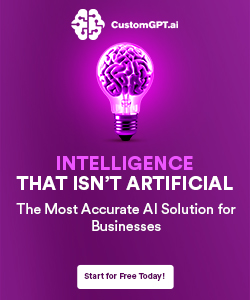Just as technology continues to evolve at an unprecedented pace, so too do the ethical challenges surrounding artificial intelligence. You must explore into the complexities of AI’s implications on privacy, fairness, and accountability to navigate this rapidly shifting landscape. As you explore these intricacies, consider how your decisions in understanding these ethical boundaries can shape the future of AI and its integration into society. Balancing innovation with moral responsibility is key to harnessing the benefits of AI while safeguarding imperative human rights.
Defining Ethics in Artificial Intelligence
A comprehensive understanding of ethics in artificial intelligence (AI) is important for navigating its complexities. You need to assess how the development and application of AI can align with moral principles, including fairness, accountability, transparency, and societal welfare. As AI systems become more integrated into daily life, your grasp of these ethical considerations will empower you to engage in meaningful discussions about the implications of AI technologies.
Historical Context of AI Ethics
Context is vital when exploring the evolution of AI ethics. The dialogue surrounding AI’s moral implications traces back to early computing discussions, focusing on the potential consequences of intelligent machines. Pioneers in AI raised ethical concerns that have since evolved, culminating in a broader conversation that encompasses emerging technologies and their societal impacts as you navigate today’s landscape.
Current Ethical Frameworks
Behind the contemporary dialogue on AI ethics are several established frameworks that guide developers and organizations in making responsible decisions. These frameworks typically emphasize principles like fairness, sustainability, accountability, and user privacy, shaping a foundational understanding of ethical AI practices.
Understanding these current ethical frameworks allows you to critically analyze how AI systems are designed and implemented. Each framework offers guidelines to address biases, privacy concerns, and the potential for misuse. By familiarizing yourself with these principles, you can better evaluate the ethical implications of various AI applications and advocate for responsible innovation that prioritizes the welfare of individuals and society as a whole.
Key Ethical Issues in AI
Some ethical issues in AI center around its impact on society, including bias, fairness, and the potential for job displacement. These issues challenge the technological advancements we celebrate because they prompt you to reconsider the broader implications of AI applications in your daily life and workplaces. As AI continues to evolve, grappling with these ethical dilemmas is vital for fostering a responsible and inclusive future.
Privacy and Data Protection
Along with the promise of information accessibility, AI also raises significant concerns regarding your privacy and data protection. The collection and analysis of personal data can encroach upon your rights, necessitating careful consideration of how AI systems manage sensitive information and ensure informed consent.
Accountability and Transparency
On the matter of accountability and transparency, AI technologies often operate as black boxes, making it difficult for you to trace their decision-making processes. This opacity raises questions about who is responsible when AI systems cause harm or make erroneous conclusions, highlighting the need for mechanisms that promote ethical governance and clarity.
The accountability of AI systems requires that you understand how they work and the entities behind them. When issues arise, it’s vital to pinpoint whether developers, companies, or regulators bear responsibility. Additionally, transparency fosters trust, as it allows you to evaluate AI’s decisions against ethical norms and societal values, ensuring that the technology aligns with your expectations and empowers rather than undermines your rights.
Bias and Fairness in AI Systems
Now, as you examine into AI, it’s necessary to address bias and fairness. AI systems can inadvertently perpetuate discrimination if they are built on biased data or flawed assumptions. Understanding the complexities of these biases is vital for developing equitable AI technologies that serve all users without prejudice.
Sources of Bias in Algorithms
Any AI system’s potential for bias stems from various sources, including skewed training data, human biases in programming, and the underlying algorithms themselves. When you train AI on datasets that lack diversity or reflect historical inequities, you risk amplifying these biases within your systems, leading to unfair outcomes.
Strategies for Mitigating Bias
To reduce bias in AI systems, you can implement several strategies, such as increasing data diversity, conducting regular audits, and engaging diverse teams in the development process. Awareness of potential biases allows for proactive measures in system design that consider a wider range of perspectives.
With these strategies, you can effectively address bias in AI systems. Data diversification ensures your AI is exposed to a broad spectrum of experiences and viewpoints, which can help level the playing field. Conducting regular audits allows you to identify and rectify potential biases in your models. Engaging diverse teams fosters creativity and insight, leading to fairer outcomes in AI design and implementation.
The Role of Regulation and Policy
Many experts emphasize that regulation and policy play pivotal roles in establishing ethical frameworks for AI development and usage. These regulations can help define acceptable practices, mitigate risks, and promote transparency in AI systems. As you explore the ethical boundaries of AI, understanding the existing legal landscape and advocating for improved policies will empower you to contribute meaningfully to a balanced approach to innovation and ethics.
Global Perspectives on AI Regulation
On the global stage, AI regulation varies significantly across countries, reflecting diverse cultural values and economic priorities. As you research into the regulatory frameworks in regions like the European Union, the United States, and Asia, you will note how differing approaches influence AI ethics. This comparison can offer insights into potential pitfalls and best practices that may inform your own understanding of ethical AI development.
The Importance of Stakeholder Engagement
Engagement with stakeholders is vital to create an inclusive and effective AI regulatory framework. By involving a diverse range of voices—such as industry experts, ethicists, policymakers, and the public—you ensure that the regulations reflect a broad spectrum of concerns and values.
Indeed, fostering stakeholder engagement allows you to tap into the perspectives and expertise of those directly affected by AI technologies. By facilitating discussions among various parties, you can identify potential ethical dilemmas and collaboratively develop guidelines that address multiple viewpoints. This collective approach not only bolsters trust in AI but also helps design regulations that adapt to the evolving technological landscape. As you consider AI’s ethical boundaries, prioritizing stakeholder engagement will enhance the legitimacy and effectiveness of your advocacy efforts.

The Impact of AI on Employment and Society
After implementing AI across various sectors, you may notice significant shifts in the workforce and societal structures. As these technologies evolve, they not only transform job roles but also challenge traditional employment paradigms. Understanding the broader implications of AI integration is crucial for navigating your career path and adapting to these changes.
Job Displacement Concerns
Behind the excitement surrounding AI advancements lies a valid worry: job displacement. As automation takes over repetitive tasks, you might find your role at risk, making it important to continuously enhance your skills and adapt to the evolving job market. Recognizing the need for education and reskilling is vital to staying relevant in your field.
Societal Implications of AI Integration
One of the most pressing considerations of AI technology is how it reshapes society. As various sectors adopt AI, you’ll observe shifts in interpersonal relationships, data privacy, and even cultural values. The way communities function may alter, necessitating a dialogue on collective ethics and responsibility.
Society experiences multifaceted changes as AI becomes more integrated into daily life. You might notice shifts in how information is consumed and shared, potentially influencing your views and interactions. Additionally, the ethical implications of data collection raise concerns about privacy and surveillance, impacting trust in institutions. By engaging with these topics, you contribute to a larger conversation about ensuring that AI serves to enhance your community and uphold ethical standards in its development and implementation.
Future Directions in AI Ethics
For those engaged in AI development, understanding future directions in AI ethics is vital. As technology advances, the complexity of ethical considerations will deepen, requiring you to stay informed about evolving standards, regulations, and societal expectations. You will need to critically evaluate how these developments impact your work and the broader implications for society, ensuring that ethical principles are at the forefront of innovation.
Emerging Technologies and Ethical Considerations
Considerations surrounding emerging technologies are paramount as you examine the ethical landscape of AI. New advancements, such as quantum computing and autonomous systems, introduce unique challenges that demand your attention. You must explore how these technologies interact with existing ethical frameworks and consider the potential societal impacts they bring.
The Ongoing Evolution of Ethical AI Practices
Emerging trends reveal that the practice of AI ethics is continuously evolving. As you engage with these trends, it’s important to adapt your understanding of ethical principles to align with community feedback, technological advancements, and regulatory changes.
Ethical AI practices now require you to be proactive in navigating these shifts. This includes embracing interdisciplinary collaborations that encompass diverse perspectives and values as well as fostering transparency and accountability in AI development. Keeping abreast of best practices and learning from case studies will equip you to shape the future of AI in a manner that aligns with ethical norms and societal needs.
Conclusion
With this in mind, as you research into AI’s ethical boundaries, you must consider the complexities surrounding bias, accountability, and transparency. These facets not only shape the ethical landscape but also dictate how AI impacts society. You should also explore the implications of data privacy and the moral responsibilities of developers in crafting AI systems. By engaging thoughtfully with these intricacies, you equip yourself to contribute meaningfully to discussions about the future of AI and its role in your life and the broader community.
FAQ
Q: What are the primary ethical considerations when implementing AI technology?
A: When implementing AI technology, several ethical considerations arise, including fairness, accountability, transparency, and privacy. Fairness addresses biases that can emerge in algorithms, ensuring that AI systems do not discriminate against particular groups. Accountability involves establishing clear responsibility for AI decisions, especially in cases of errors or harm. Transparency is imperative for users to understand how AI systems function and make decisions. Lastly, privacy concerns relate to the handling of personal data used in training AI, necessitating policies that protect user information from misuse.
Q: How can bias in AI models impact decision-making processes?
A: Bias in AI models can significantly distort decision-making processes, leading to outcomes that may perpetuate existing inequalities or create new ones. For example, biased algorithms in hiring software can favor specific demographics over others, adversely affecting job opportunities. Similarly, in predictive policing, biased data can result in over-policing certain communities. It is imperative to evaluate training data for representativeness, implement fairness audits, and include diverse perspectives in AI development to mitigate these risks and promote equitable outcomes.
Q: What role does public engagement play in shaping AI ethical frameworks?
A: Public engagement is vital in shaping AI ethical frameworks as it ensures that the perspectives and values of various stakeholders are represented. Engaging the public fosters a more inclusive dialogue about the implications of AI technology, allowing concerns from different communities to be addressed proactively. This process can lead to the formation of more socially responsible AI systems that align with societal values. Incorporating input from ethicists, social scientists, and the affected communities can enhance the development of ethical guidelines and policy recommendations surrounding AI usage.










